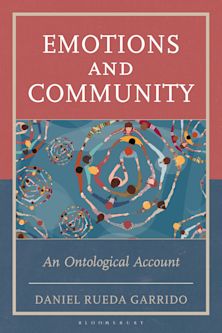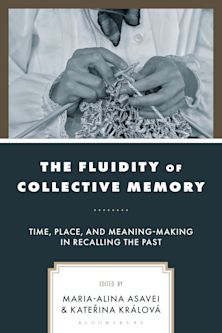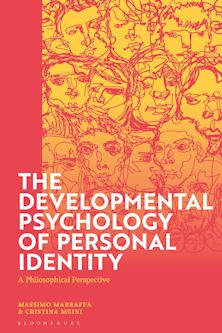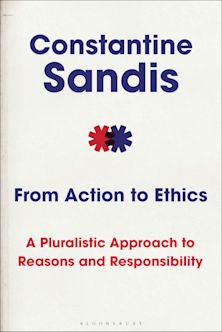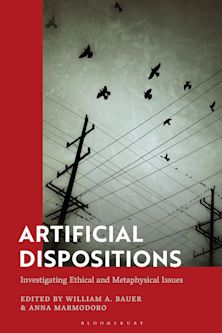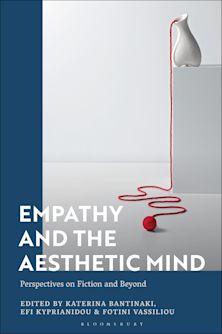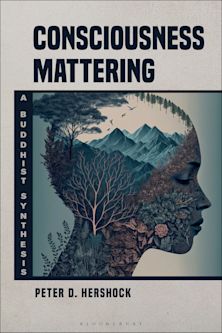- Home
- ACADEMIC
- Philosophy
- Philosophy of Mind
- Mindfulness and Letting Be
You must sign in to add this item to your wishlist. Please sign in or create an account
Description
Mindfulness and Letting Be: On Engaged Thinking and Acting is a protest against the extreme mindlessness or thoughtlessness of our age, a malaise covered by manipulative cleverness and by minds filled to the brim with opinions, doctrines, marching orders, and ideologies. Rather than concentrating on a self-contained "mind," Fred Dallmayr pleads for an act of "minding" about oneself, one’s fellow beings, society, and the world. What is required for such mindfulness is not a predatory reason, but a kind of reticence or "mind-fasting" as preparation for a genuine attentiveness able to "let be" without aloofness or indifference. Dallmayr explores the benefits of such mindfulness in the fields of philosophy or theory, practical conduct, language use, art works, historical understanding, and cosmopolitanism, and the insights that arise will be of benefit to students and scholars of continental, social, and political philosophy.
Table of Contents
Chapter 2. Beyond "Action Theory": Mindful Praxis
Chapter 3. Nothingness, Non-Being, Emptiness: Thinking at the Edge of Thought
Chapter 4. But Only Speak the Word: Mindfulness and Language
Chapter 5. Naturing Nature: Mindfulness and Art
Chapter 6. The Future of the Past: Mindfulness and History
Chapter 7. Why Cross-cultural Studies Now?: Mindfulness and Cosmopolis
Appendix A. Are Humans Becoming Superfluous?: Robots and Gestell
Appendix B. For an Apophatic Humanism: Orthopraxis
Appendix C. Empire and Mindfulness: Theocracy as Temptation
Product details
| Published | Sep 17 2014 |
|---|---|
| Format | Ebook (Epub & Mobi) |
| Edition | 1st |
| Extent | 166 |
| ISBN | 9780739199879 |
| Imprint | Lexington Books |
| Publisher | Bloomsbury Publishing |
About the contributors
Reviews
-
Distancing himself from current psychosocial uses of the term mindfulness, which he reads as too deeply connected to a Cartesian sense of self, Dallmayr carefully outlines a notion of mindfulness that aims to overcome the calculative thinking endemic to the Cartesianism of contemporary times. The book comprises seven chapters and three appendixes. All chapters focus on an aspect of mindfulness; they include 'Mindful Praxis,' 'Mindfulness and Cosmopolis,' and similar chapters on art, history, and language. The project draws on Western thinkers such as Martin Heidegger, Jacques Derrida, and Maurice Merleau-Ponty and explores Eastern contributions through Raimon Panikkar and classical Indian and Chinese thought. In each case, the book elaborates on the practice of letting be. Appendixes are freestanding essays exploring mindfulness and contemporary questions of the role of technology, the relationship between mindfulness theory and praxis, and the contemporary situation of empire building. Dallmayr’s prose is readable and clear. Though Heidegger’s influence is felt throughout the text, Dallmayr’s explanations make it deeply relevant and compelling. Through the author's inspiring description of an active 'letting be,' readers will gain insight into a way out of the mindlessness of contemporary society. Summing Up: Recommended. Upper-division undergraduates through researchers/faculty.
Choice Reviews
-
Fred Dallmayr has written another a remarkable book. Learned and scholarly, it is also clear and unpretentious in its language. Sweeping in its cultural concerns and references, it is also focused upon the most basic and simple enigmas of life. Throughout, Dallmayr reminds us of the real challenges of a life that is engaged and full of thought.
Dennis J. Schmidt, Pennsylvania State University
-
Mindfulness and Letting Be contains fresh and inspiring words of wisdom from a well-known, distinguished master of Heidegger’s thought. Fred Dallmayr's outlook is at the same time genuinely global, in the best sense of that word, and suffused with concern about humanity’s future.
William L. McBride, Purdue University
-
Mindfulness and Letting Be: on Engaged Thinking and Acting brings us further along the arc of Dallmayr’s post-individualist political theory. Critical of contemporary pop culture understandings of mindfulness, Dallmayr instead rethinks the concept as an active “letting be.” He provides a provocative and thoughtful cross-cultural argument for the resources, both theoretically and practically, mindfulness provides for a response to global dehumanization.
Peg Birmingham, Professor of Philosophy, DePaul University












